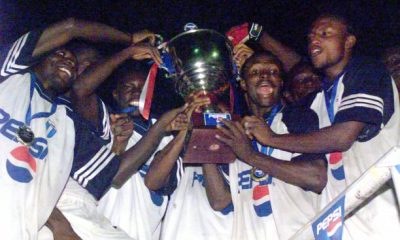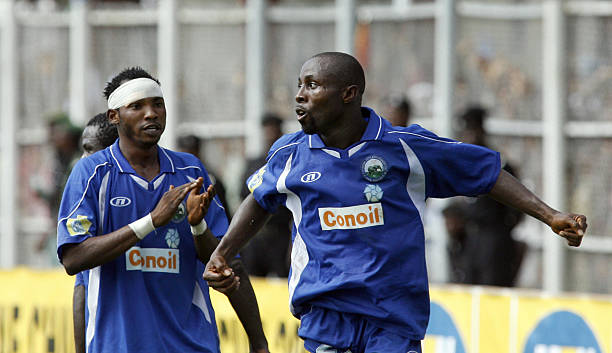
The CAF Champions League is the crown jewel of African club football. It’s where legends are born, dynasties are forged, and footballing nations stake their claim on the continental stage. For Nigeria—a country with a proud footballing heritage—the competition has delivered both ecstasy and heartbreak.
In the early 2000s, Enyimba International FC put Nigeria firmly on the African football map, winning the CAF Champions League back-to-back in 2003 and 2004. Those victories symbolized not just the rise of a club, but the emergence of Nigeria as a powerhouse in club football.
However, over the last two decades, Nigeria’s presence in the tournament has steadily declined. Early exits, administrative chaos, poor preparations, and tactical immaturity have combined to stifle Nigerian clubs’ ambitions on the continent. In contrast, North African clubs like Al Ahly, Wydad Casablanca, Esperance, and Zamalek have become perennial contenders.
So, what went wrong? More importantly, what can be done to restore Nigeria’s former glory?
In this web story, we explore 7 strategic, exhaustive, and actionable ways Nigerian teams can return to dominance in the CAF Champions League.
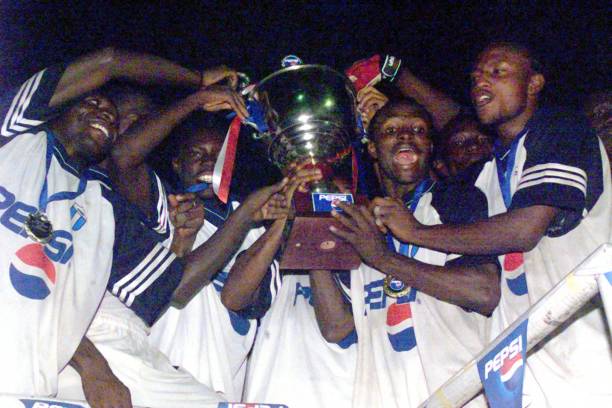
AFP PHOTO/PIUS UTOMI EKPEI (Photo by PIUS UTOMI EKPEI / AFP) (Photo by PIUS UTOMI EKPEI/AFP via Getty Images)
7. Professionalize Club Administration and Governance
❖ Problem:
Most Nigerian clubs suffer from unstable management, inadequate planning, and limited transparency. Many are state-owned and subject to government interference, which makes long-term planning difficult.
❖ Why It Matters:
The CAF Champions League is not won by talent alone. Success in Africa’s elite club competition requires strategic planning, efficient budgeting, smart squad building, and flawless logistics.
❖ Actionable Solutions:
- Privatization or PPPs: Encourage clubs to transition from full government ownership to hybrid or private ownership models. This allows for independent decision-making, corporate sponsorship, and long-term visioning.
- Hire Sports Administrators, Not Politicians: Clubs should be led by professionals trained in sports business, marketing, and operations—not civil servants or political appointees.
- Adopt CAF Club Licensing Standards Rigorously: Financial audits, stadium standards, player welfare systems, and digital presence must be part of every top-tier club’s DNA.
❖ Case Study:
During Enyimba’s golden era, then-Abia State governor Orji Uzor Kalu treated the club like a business. A dedicated management team, budget autonomy, and a clear footballing philosophy helped them conquer the CAF Champions League twice.
6. Build and Retain Elite Coaching Structures
❖ Problem:
Nigerian clubs change coaches frequently, often without due process. There is little investment in long-term technical development, and most coaches lack continental exposure or tactical education.
❖ Why It Matters:
The CAF Champions League rewards clubs that have a clear football identity and tactical consistency. Frequent managerial changes cause confusion, weaken squad cohesion, and disrupt game plans.
❖ Actionable Solutions:
- Long-Term Coaching Contracts: Clubs should appoint coaches on 3–5-year contracts tied to strategic milestones.
- Technical Development Funds: Allocate part of club budgets for sending coaches to CAF/UEFA training programs.
- Create a Director of Football Role: This ensures continuity in philosophy even when head coaches change.
❖ Example:
North African clubs invest heavily in coaching. Al Ahly regularly hires coaches with UEFA experience and retains them long enough to embed a style of play. Nigerian clubs must do the same to stand a chance in the CAF Champions League.
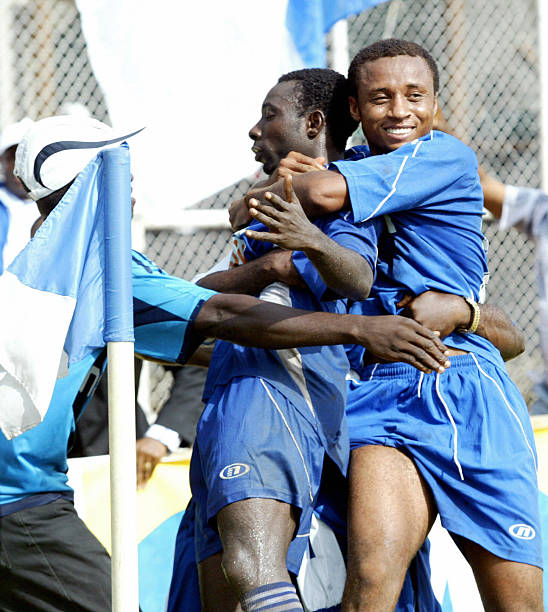
5. Upgrade Infrastructure: Stadiums, Training, and Recovery
❖ Problem:
Many Nigerian clubs play on poor pitches, train without proper facilities, and lack access to nutritionists, psychologists, or injury rehabilitation experts.
❖ Why It Matters:
The CAF Champions League is a grueling marathon—spanning nine months, involving travel across harsh terrains, and often requiring midweek fixtures. Without modern facilities, clubs suffer injuries, player burnout, and poor home advantage.
❖ Solutions:
- Hybrid Pitches: Invest in FIFA-standard natural or hybrid turf for home grounds.
- High-Performance Centers: Establish training campuses with recovery rooms, gyms, ice baths, tactical video analysis rooms, and altitude chambers.
- CAF-Approved Stadiums: Ensure every club competing in the CAF Champions League has a stadium certified for night games, broadcasting, and crowd control.
❖ Example:
Enyimba’s Aba Stadium during the early 2000s was considered one of the best home grounds in Africa. It became a fortress that intimidated opponents and helped the team reach two finals.
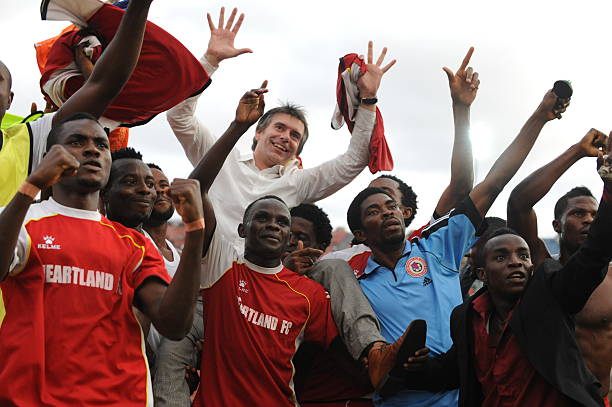
4. Dominate at Home, Neutralize Away: Master the Mental Game
❖ Problem:
Nigerian teams often struggle on the road—especially in North Africa. Intimidating fans, harsh climates, biased refereeing, and travel fatigue contribute to poor away performances.
❖ Why It Matters:
Winning the CAF Champions League requires mastering both legs. Home games must be turned into sure wins, while away fixtures need to be approached with a defensive, disciplined strategy.
❖ Tactical Solutions:
- Mental Training: Hire sports psychologists to prepare players for hostile environments.
- Travel Logistics: Arrive 72 hours before games to adapt to climate, food, and altitude.
- Game Management: Teach players time-wasting, tactical fouling, and defensive shape under pressure—strategies North African sides use so well.
❖ Example:
Kano Pillars’ 2-2 draw in Cairo against Al Ahly in 2009 was a result of disciplined defending, aggressive pressing, and confidence under pressure—traits other Nigerian teams must emulate in the CAF Champions League.
3. Build Squad Depth and Continental Experience
❖ Problem:
NPFL sides often enter continental competitions with thin squads. Once injuries hit or suspensions arise, quality drops significantly. Many clubs also lack players with CAF Champions League experience.
❖ Why It Matters:
Winning the tournament requires consistency across 12–14 games, often in quick succession. Teams need a rotatable squad with depth in key positions and battle-hardened players.
❖ Strategies:
- Sign CAF-Experienced Players: Look beyond local leagues; recruit from Congo, Ghana, Cameroon, or Tunisia.
- Youth Development Pipelines: Develop 17–21-year-old prospects who can be rotated into less crucial group-stage games.
- Loan Deals: Use short-term loan agreements to boost squad strength during the continental window.
SUGGESTED FOR YOU
Top 5 Greatest CAF Champions League Moments of Nigerian Teams
❖ Example:
Enyimba’s 2004 squad combined local stars like Obinna Nwaneri and Ifeanyi Ekwueme with imports like Joetex Frimpong. Their ability to rotate attackers without a dip in quality helped win the CAF Champions League.
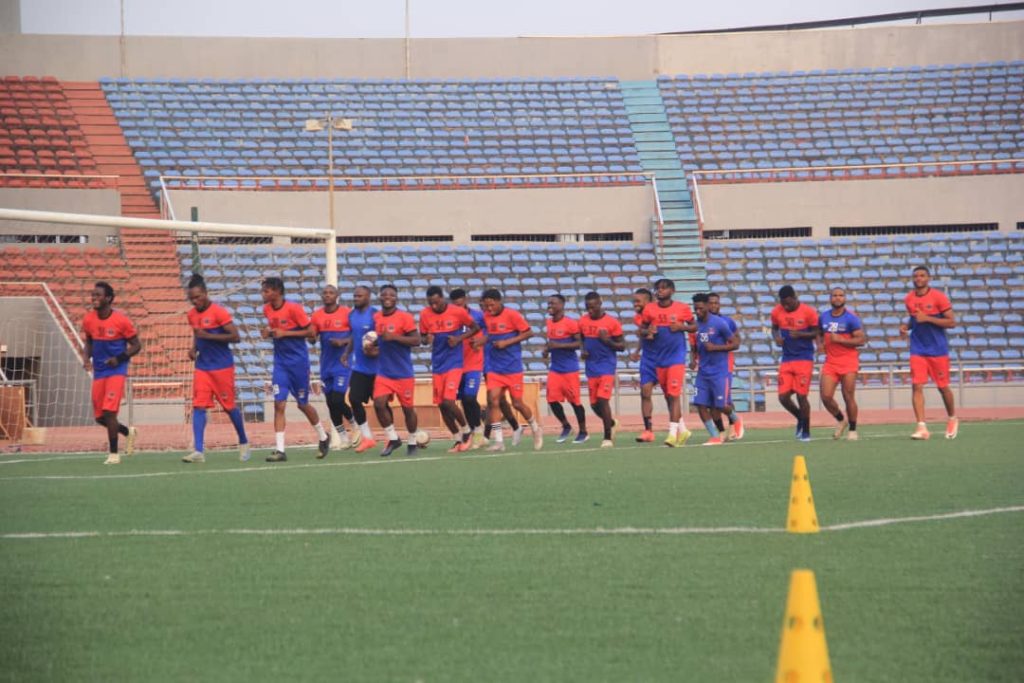
2. Financial Planning and Revenue Sustainability
❖ Problem:
Most Nigerian clubs rely on last-minute government bailouts. Budgeting is ad hoc, and players are owed wages—leading to poor morale and legal disputes.
❖ Why It Matters:
CAF competitions are financially demanding. Clubs must fund logistics, training camps, match bonuses, international travel, and player acquisitions. Without money, success in the CAF Champions League is impossible.
❖ Financial Solutions:
- Pre-Competition Fundraising: Launch club bonds or private investor pools six months before CAF entry.
- CAF Revenue Maximization: Plan to reach the group stage (guaranteeing $550,000 minimum), which requires upfront investment.
- Sponsorship Activation: Leverage participation to attract telecommunications, energy, and fintech sponsors.
❖ Example:
In 2003, Enyimba operated with a structured budget that funded back-to-back campaigns. Today, Rivers United is attempting something similar, albeit inconsistently.
1. Align NPFL Calendar with CAF Champions League Timeline
❖ Problem:
Nigerian clubs often enter CAF preliminary rounds undercooked. The NPFL calendar is frequently delayed, leaving clubs inactive or underprepared.
❖ Why It Matters:
By the time clubs from Egypt, Morocco, or Tunisia enter the CAF Champions League, they are already in peak domestic form. Nigerian clubs, meanwhile, are either in pre-season or playing friendlies.
❖ Tactical Calendar Reforms:
- Synchronize League with CAF Timeline: Ensure the league ends by June and resumes by September, aligning with CAF’s competition windows.
- Preseason Tournaments: Mandate clubs to play a minimum number of pre-CAF fixtures against top NPFL or West African sides.
- CAF Readiness Clause: Clubs qualifying for CAF competitions should start training camps at least 6 weeks before their first CAF match.
❖ Long-Term Fix:
The NPFL must adopt a CAF-compliant calendar with clearly defined season start and end dates. Without calendar integrity, no Nigerian team can seriously contend in the CAF Champions League.
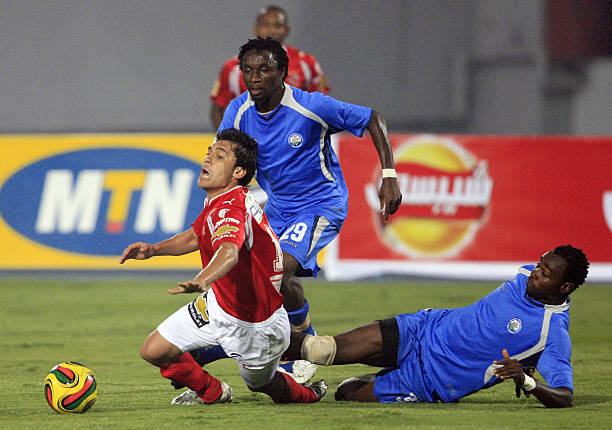
The Glory Days Can Return, But Only With Strategy
The decline of Nigerian dominance in the CAF Champions League isn’t irreversible. But reclaiming the throne requires more than passion—it demands structure, investment, discipline, and vision.
If clubs like Enyimba, Rivers United, Remo Stars, and Plateau United implement these seven strategies, they will not only compete—they will dominate. The next era of Nigerian club football must be built on planning, not miracles.
The ball is in our court. And the continent is watching.




